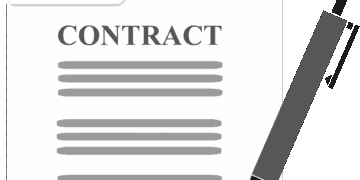A “Letter of Intent” (LOI) or a “Memorandum of Understanding” (MOU)? We’ve all heard these terms before, but what do they actually mean and how do they differ?
What is a “Letter of Intent”?
A “Letter of Intent”, or LOI, is a document that expresses my client’s intention to take a certain action. It is important to understand that an LOI is not a legally binding commitment, but rather serves as a formal communication between the parties involved. In my practice, I often use LOIs to express my clients’ interest in a transaction or partnership before the formal contracts are negotiated and signed.
How does a “Letter of Intent” differ from a “Memorandum of Understanding”?
A Memorandum of Understanding (MOU) differs from an LOI in several important ways. An MOU is usually more detailed and specific than an LOI. It is a formal agreement between two or more parties that expresses a consensus of intentions and a common line of action1. In this regard, depending on the specific conditions and context, an MOU may be legally binding, although it is not necessarily legally binding.
In my practice, I use an MOU when my clients want to establish a common understanding or intent for future collaboration. It serves as a bridge between the informal discussion and the formal agreement, helping to clarify each party’s responsibilities and express commitment to future collaboration.
An MOU is usually used when my clients have already reached a certain level of agreement and want to define the details of their collaboration. This is in contrast to the LOI, which is often used in the early stages of a transaction to express interest in working together before contract negotiations begin.
Another important point for my clients to keep in mind is that the way the parties deal with an MOU should be different than with an LOI. This is because the potential binding effect of the two agreements may be different. While an LOI is generally not legally binding, an MOU can be legally binding under certain conditions. Therefore, it is critical to understand these differences and act accordingly to avoid legal complications.
Why you should choose my expertise
With my many years of experience and expertise in drafting LOIs and MOUs, I can not only quickly and cost-effectively create such agreements for you, but also ensure that these documents take into account all aspects typical of the industry. I understand the complexities and nuances involved in drafting these legal documents and can guide you through the process.
I can provide you with comprehensive advice on how to deal with an LOI or MOU and what opportunities and constraints these documents bring. Of particular importance here is that the parties’ approach to an LOI should be different from that of an MOU, as the potential binding effect of the two agreements may be different. It is my goal to make you fully informed and confident in your decision before you enter into a legal agreement.











































